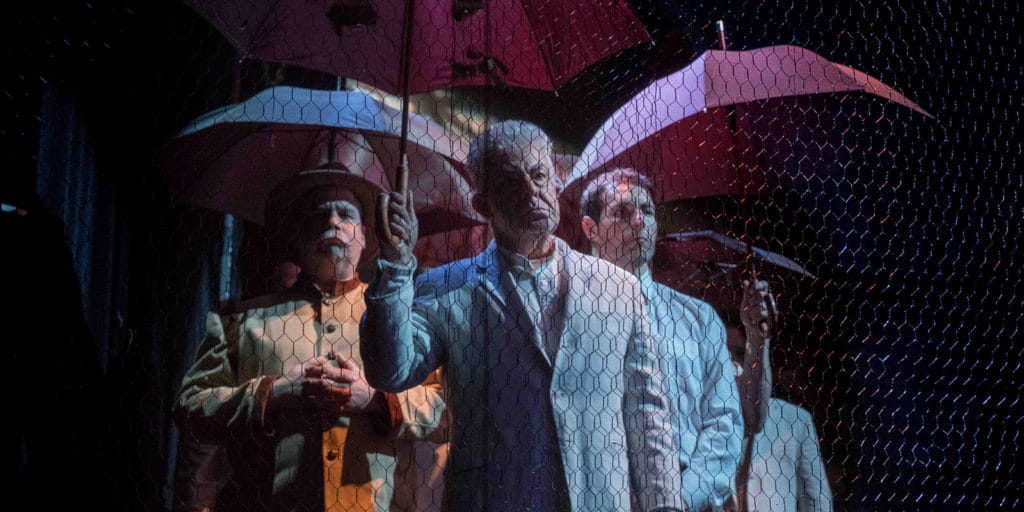El coronel no tiene quien le escriba (No One Writes to the Colonel) is a 1961 novella by Colombian Nobel Prize-winning author Gabriel García Márquez. It’s about how history repeats itself. It was also a 1999 movie. Repertorio adapted it for the stage in 2017 – 2018.
The next performance is Thursday, February 27, 2020 at 11am. $30
El coronel no tiene quien le escriba (Play)
Colombian film and theater director Jorge Alí Triana and Verónica Triana adapted the novel into a play for Repertorio Español’s 50th anniversary in 2018. Funding was provided in part by the Rockefeller Brothers Fund.
The 2018 play starred Colombian actor Germán Jaramillo (Narcos) and Cuban actress Zulema Clares. Jaramillo is a co-founder and Artistic Director of ID Studio Theater. Clares is an acclaimed award-winning actress in Cuba. The original cast show ran February 23 – August 19, 2018. $17 – $72
In Spanish, with English subtitles.
El coronel no tiene quien le escriba (Movie)
Mexican director Arturo Ripsten made the story into a movie in 1999 starring Fernando Luján, Marisa Paredes, and Salma Hayek.
El coronel no tiene quien le escriba (Book)
El coronel no tiene quien le escriba (No One Writes to the Colonel) is a 1961 novella by Colombian Nobel Prize-winning author Gabriel García Márquez. It is also the title of a collection of short stories.
Márquez, the father of magical realism (surrealism) in literature, considered it to be his best book. One of his main themes is the recurring nature of history.
Latin American authors write in code because speaking plainly can mean torture and death for you and your entire family. Everyone in your country understands what you mean, but at least you don’t die for your words.
Márquez’ most famous novel Cien años de solidad (One Hundred Years of Solitude) tells the history of Latin America in the fictional story of seven generations of one family. Márquez said that he had to write Cien años so that people would read El coronel.
It tells the story of a poor, retired colonel with a sick wife who has been visiting the post office every Friday for the last fifteen years, obsessively hoping to receive his long-promised pension. Everyone in the town knows he will get nothing. His wife knows. Even the colonel knows, but he keeps going through the motions while processing the pain of the death of his son.
The colonel is a veteran of La Guerra de los Mil Días (The Thousand Days War), the Colombian civil war of 1899 – 1902. The story is set in La Violencia (The Violence) which was a Colombian civil war from 1948 – 1958.
It seems that we have always been at war. In the 1970s, soon after the time of the story, the narcos rose to power and set off a three-way Colombian Civil War between narcos, communist guerrillas, and right-wing mercenaries that is just now ending, well sort of.
We have trouble living in peace because our political institutions are buried in a deeply corrupt bureaucracy. Vengeance becomes more important than life, again and again.
In a metaphor for this unending cycle of violence, the colonel tries to survive by selling his dead son’s inheritance. The only reminder he has of his son is his son’s gamecock. It turns out that his son was killed for it. The colonel ends up training the cock to fight.
So here we go again…
We are trapped in our own history.
El coronel no tiene quien le escriba Tickets
Tickets are available at the Repertorio Español box office and online at repertorio.nyc
Morning shows are $30. Afternoon and evening shows start at $15.
Repertorio Español
138 East 27th St, New York, NY 10016
(near Lexington)
Kips Bay, Manhattan

